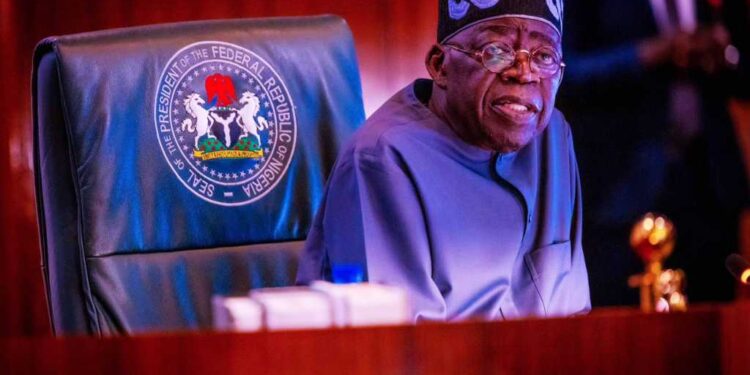President Tinubu’s $2.2bn loan request is set for Senate approval, marking a major step in addressing Nigeria’s 2024 budget deficit.
The Nigerian Senate is set to approve President Bola Tinubu’s $2.2 billion (approximately ₦1.77 trillion) loan request today.
The loan, part of the external borrowing plan, is integral to financing the ₦28.7 trillion 2024 budget, which includes a ₦9.7 trillion deficit.

Also read: PRESIDENT TINUBU APPOINTS THREE DIRECTORS-GENERAL AND ONE SPECIAL ADVISER ON PUBLIC COMMUNICATION
During Tuesday’s plenary sessions, Senate President Godswill Akpabio directed the Senate Committee on Local and Foreign Debts to review the request and submit a report within 24 hours.
Akpabio noted that the borrowing aligns with the external financing strategy outlined for the upcoming fiscal year.
“The Presidential request for $2.2 billion, equivalent to ₦1.77 trillion, is already enshrined in the external borrowing plan for the 2024 fiscal year,” Akpabio stated.
In a parallel move, President Tinubu submitted the Medium-Term Expenditure Framework (MTEF) and Fiscal Strategy Paper (FSP) for 2025–2027.
These documents were forwarded to both the Senate and the House of Representatives for consideration.
Key Economic Benchmarks for 2025
The MTEF/FSP outlines the following economic parameters for the ₦47.9 trillion 2025 budget:
– Oil price benchmark: $75 per barrel
– Daily oil production: 2.06 million barrels
– Exchange rate: ₦1,400 to $1
– GDP growth target: 6.4%
The Senate Committee on Finance, National Planning, and Economic Affairs was tasked with reviewing these documents and reporting within a week.
In another development, Tinubu submitted the Social Investment Programme Amendment Bill, seeking to improve the transparency and efficiency of Nigeria’s welfare programmes.
The bill proposes designating the National Investment Register as the primary tool for identifying and targeting beneficiaries.
Tinubu explained that the amendment would ensure welfare initiatives are data-driven, addressing the needs of vulnerable citizens more effectively.
“The amendment will make our social and welfare programs more transparent, efficient, and impactful,” he said.
The Senate has referred the bill to relevant committees for review. If passed, the amendment is expected to strengthen the framework for delivering social protection and combatting poverty nationwide.
This double-pronged approach highlights the administration’s commitment to addressing fiscal challenges while ensuring effective welfare programme delivery.









